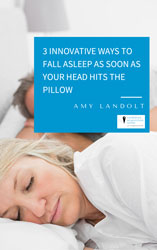 According to the Anxiety Disorders Association of America, anxiety disorders are the most common mental health disorder in the U.S., affecting 40 million adults and costing more than $42 billion a year.
According to the Anxiety Disorders Association of America, anxiety disorders are the most common mental health disorder in the U.S., affecting 40 million adults and costing more than $42 billion a year.
Feelings of anxiety, worry and fear related to significant and challenging events are justified and very common. Anxiety becomes a problem when emotional reactions are out of proportion with what might be “normally” expected in a situation, and when symptoms interfere with a person’s daily functioning or sleep patterns. Mild anxiety leaves a person feeling a bit unsettled, while severe anxiety can be extremely debilitating.
Acupuncture. A clinical study conducted in China in 2010, has concluded that acupuncture is a “safe and effective” treatment for mood disorders including depression and severe anxiety, in some cases proving to increase the effectiveness of medication-based treatments. Additionally a 2009 study, again in China, determined that acupuncture alone could help patients who suffer from anxiety but cannot be chemically treated due to intolerable side-effects of medications.
In many Western schools of thought, anxiety disorders are considered to be dysfunctions in a person’s brain chemistry. An acupuncturist does not view anxiety as a brain dysfunction, but rather as an imbalance in a person’s organ system. In Traditional Chinese Medicine, this imbalance is called Shan You Si (“anxiety & preoccupation”), and is believed to affect the main organs: the Heart, Lung, Spleen, Liver, and Kidneys. Each organ is related to different aspects of a person’s emotions.
For instance, worry is said to affect the Spleen, grief affects the Lungs, anger the Liver, fear the Kidneys, and lack of joy the Heart. If a person experiences one or more of these emotions over a long period of time due to lifestyle, dietary, hereditary and environmental factors, it can cause an imbalanced emotional state and lead to various anxiety disorders.
The role of an acupuncturist is to investigate the underlying causes of the anxiety by carrying out a thorough diagnostic evaluation in order to determine which organ system has been affected and is out of balance. The acupuncturist will then seek to restore the imbalance by inserting fine, sterile needles into the points correlating to those organs. Additionally, acupuncture helps to reduce stress, ultimately encouraging and supporting a greater sense of well-being and balance.
Belly Breathing. Most Americans are chest-breathers. When we are stressed, our breathing becomes even more shallow and rapid. Shallow, rapid breathing causes the body to remain in a state of fight or flight. By taking deep, slow breaths, we activate the parasympathetic (rest and digest) system which promotes a state of calmness.
Shallow breathing limits the diaphragm’s range of motion. The lowest part of the lungs doesn’t get filled with oxygenated air, which can make you feel short of breath and anxious.
A daily breathing practice, which can be as simple as five minutes a day, or 10 breaths every hour, can slow your heart rate, lower your blood pressure, slow your breathing rate, reduce the activity of stress hormones, reduce muscle tension and pain, improve concentration, and reduce anxiety. Breathing techniques help you connect to your body and quiet your mind.
See this article for 4 types of deep breathing techniques to incorporate into your daily routine.
Essential Oils. Essential oils can have a powerful effect on our mood and emotions. Diffusing lavender, rose, roman chamomile, a grounding blend, a reassuring blend, or a calming blend has a calming effect and promotes a feeling of relaxation. If you are interested in purchasing therapeutic grade oils, one source is doTERRA.
Fake It Till You Make It. Combine the work of Amy Cuddy and Marissa Peer and start each morning by saying “I am enough!” out loud for 2 minutes while standing in a Wonder Woman pose (wearing a cape is optional). What do you have to lose?
Call Northshore Acupuncture Center at 815-814-1319 to find out more about acupuncture and essential oils can help manage your anxiety.
Resources:
http://www.adaa.org/about-adaa/press-room/facts-statistics
http://www.acupuncture.com/newsletters/m_july10/anxiety.htm
Zhang (2010). “The effectiveness and safety of acupuncture therapy in depressive disorders: Systematic review and meta-analysis”. Journal of Affective Disorders, 124, 1-2, July 2010.
Wen (2009). “Combination of acupuncture and Fluoxentine for depression: A randomized, double-blind, sham-controlled trial”. The Journal of Alternative and Complementary Medicine, 15, 8, August 13, 2009.
 Sign up to receive news and updates and get my free report:
Sign up to receive news and updates and get my free report:

